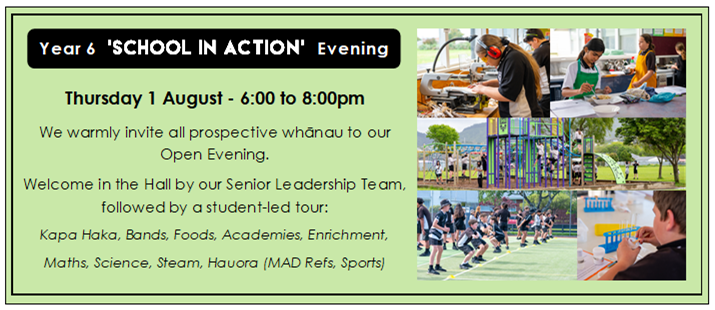
Ākonga Wellbeing & Health Support
Ākonga Wellbeing
At Maidstone Intermediate, we want our ākonga to be supported in all aspects of their Hauora (well-being). This includes physically (tinana), mentally and emotionally (hinengaro), socially (whānau), and spiritually (wairua); as well as cultivating an environment of inclusion and belonging.
Our Meeting Challenges programme involves working with our counsellor in a way that equips ākonga to face challenges, while remaining strengths-focused. It is important to us that ākonga feel safe, their voice is heard, and they are advocated for.
Looking After My Own Wellbeing
A great place to start when it comes to looking after our own well-being is to start with the basics. These include our eating habits, sleep routine, water intake, exercise, and reducing screen time.

Eating Habits
Sleep Routine
Having a consistent and good sleep routine is important for the mental health of our tamariki, as it increases resilience, helps regulate their emotions, and allows the body to rest and process information. A lack of sleep can mean an increase in irritability, sensitivity, and impulse. It can contribute to depression and anxiety, make it hard to cope with stress, and interrupt hormones.
Going through this sleep hygiene resource can offer some guidance towards creating a healthier sleep routine.
For more information you can also visit the health navigator, or for helpful strategies watch this video on how to calm your worries and sleep better.

Water
One of the most simple acts we can do to improve our mood is to drink water. It is suggested that tamariki drink seven glasses of water a day. A healthy water intake is able to boost our concentration, and reduce anxiety levels and tension.
Exercise

Screen Time
Anxiety

Mindfulness – Breathing & Grounding
Mindfulness is a helpful tool when it comes to managing anxiety, stress, and helping to regulate our emotions. The concept of mindfulness is about being present, and using various tools and techniques to do so. A few commonly used mindfulness techniques include: deep breathing and grounding which aim to reduce anxiety, and regulate our nervous system.
For practical ways to start, try some of the following exercises.
To understand more about how mindfulness can be beneficial check out this video How mindfulness empowers us.
Meditation
This can be another way of practising mindfulness, and can look different for everyone.
Happify has an online meditation 101 for a helpful starting place. Headspace also has a 10-minute meditation for reframing stress, as well as many other helpful resources and information on their website.
Check out: How to have better mental health and 6 small habits to improve mental wellness.


